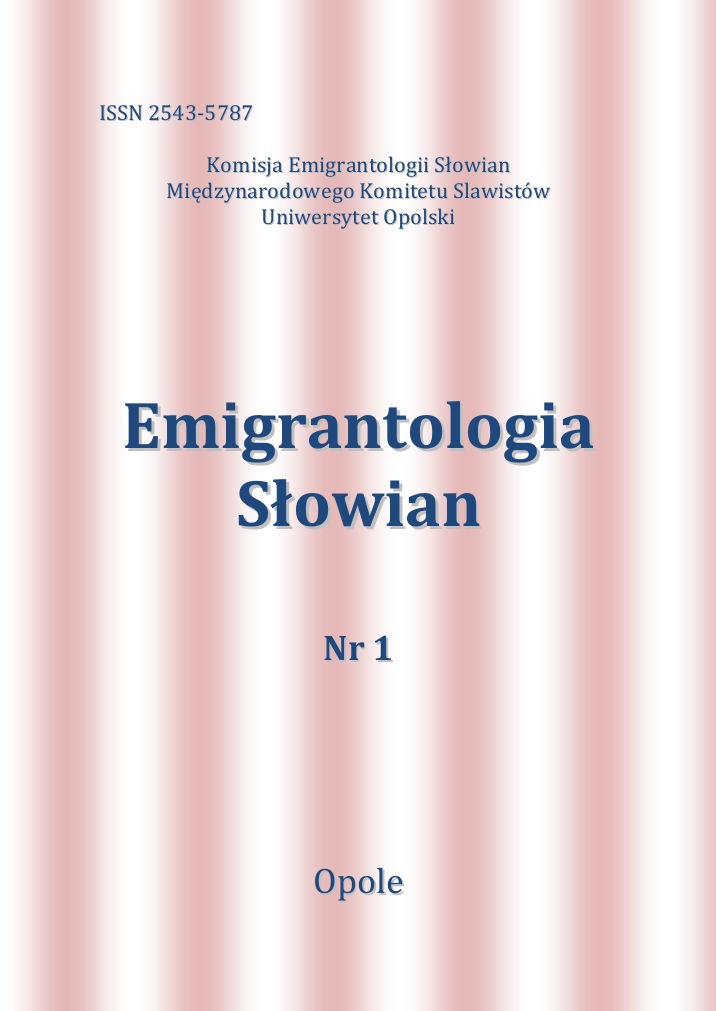
We kindly inform you that, as long as the subject affiliation of our 300.000+ articles is in progress, you might get unsufficient or no results on your third level or second level search. In this case, please broaden your search criteria.

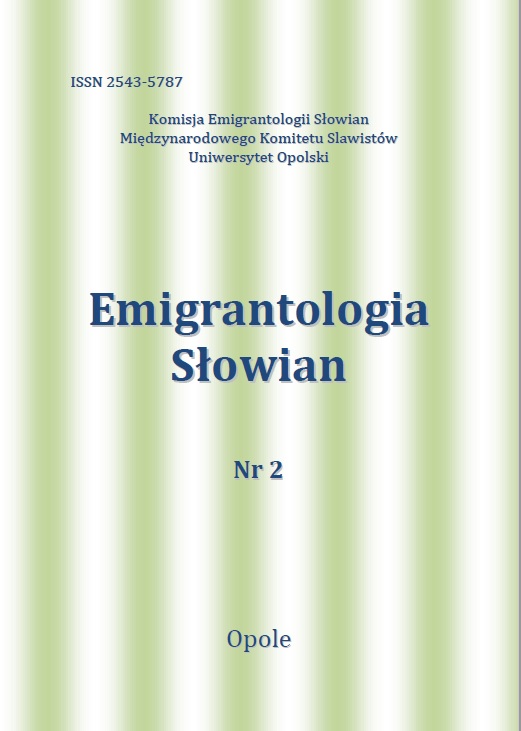
Conference report on an international scientific conference “Old Believers Abroad”, held in Toruń 19th-20th September 2016. The conference was devoted to various aspects of life of Old Believers’ communities outside Russia, as well as the problems of Old Believer emigration and general questions of Old Believerism.
More...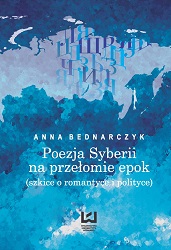
Celem autorki stało się prześledzenie współczesnej syberyjskiej twórczości poetyckiej pod kątem odwzorowania przez nią zmian politycznych. Analizując twórczość współczesnych syberyjskich autorów, badaczka zwróciła uwagę na wyrażenie się w materii poetyckiej więzi z Syberią i ekonomiczno-politycznych uwarunkowań państwa w obliczu upadku ZSRR oraz kształtowania się dzisiejszej Rosji, a zarazem na pewną specyfikę syberyjskiego podejścia do tych zmian. Podjęto też zagadnienia: więzi poetów z małą ojczyzną, jaką jest dla nich Syberia; romantyki Syberii jako elementu przyciągającego twórców; twórczości współczesnych syberyjskich „poczwienników”; opozycji między dzisiejszymi syberyjskimi „Euroazjatami” i „Europejczykami”; więzi z historią i stosunku do problemów, jakie niesie nowa rzeczywistość; związków nowej poezji z tradycją literatury rosyjskiej; eksperymentów poetyckich obecnych w twórczości współczesnych poetów syberyjskich; syberyjskiej piosenki autorskiej; zmian w poezji przeznaczonej dla czytelnika dziecięcego.
More...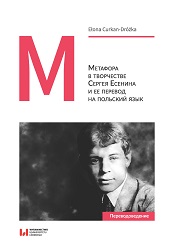
The metaphor reflects not only the sophistication of the poet's style but also contains critical information about poet`s outlook, his values, the perception of his native culture. Due to such strong informational connotations, translation of the metaphors is one of the most complicated tasks and cannot be done by everyone. The object of this investigation are the translations of the metaphorical expressions abounding in Sergei Yesenin`s poetry, done by Polish translators in the course of a few decades. The author pays particular attention to the transformations of the metaphorical images, which have taken place in the process of translation.
More...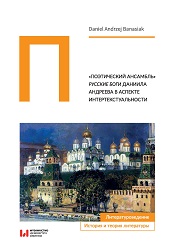
One of the most mysterious figures in the history of Russian literature, mysticism and philosophy is Daniil Leonidovich Andreev (1906–1959), the son of Leonid Andreev, the famous prose writer and playwright of the Silver Age of Russian literature. The research object in this monograph is the magnum opus Russian Gods by Daniil Andreev. He created this work from the beginning of the 1930s to 1955; he repeatedly reworked it, rebuilt compositionally, but did not manage to finish it. Three of its parts have been preserved only in the form of drafts. In Russian Gods we are dealing with a myth project oriented on the values of Russian culture. The anthropology of this myth is based on the spiritual (homo religiosus) and creative (homo creans) human potential, while the poetic world takes on the symbolic cross which horizontally indicates the process of history, and vertically – the interpenetration of real space with the unreal (in heaven and hell). The emphasis on the intertextual approach in the study of the literary text was dictated by the specificity of Andreev’s creativity. Its distinguishing feature is referring to “other people’s “words in their various manifestations. The texts of Daniil Andreev abound in historical, cultural and literary parallels, quotes, reminiscences, allusions, literary associations and other forms of intertextuality. He conducts a dialogue with representatives of Russian culture (from the earliest times to modern times) and literature (Alexandr Pushkin, Fyodor Tyutchev, Afanasy Fet, Mikhail Saltykov-Shchedrin, Ivan Turgenev, Fyodor Dostoyevsky, Leo Tolstoy, Alexandr Blok), as well as with Europeans (William Shakespeare, Jonathan Swift, Johann Wolfgang Goethe, Charles Dickens, Herbert Wells, Richard Wagner).
More...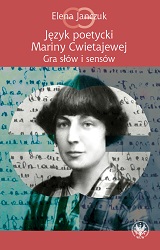
The author presents the works of Marina Tsvetaeva through the prism of language, discussing in detail the different aspects of her poetry: the ways of creating the poetic world through various literary devices, poetical texts viewed as a form of the existence of reality, the problems of the functioning of the poetic language and the ways of constructing new or hidden meanings. She portrays the poet’s way of creating text by applying phonetical, lexical, semantic, syntactic, and stylistic criteria. The publication is aimed at scholars of Russian literature, literary scholars and translators of poetry.
More...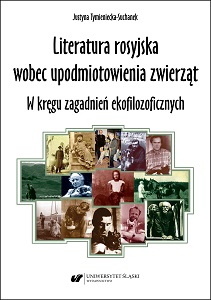
The research is devoted to the selected problems related to eco‑philosophical issues analysed on the basis of Russian literature of the last two centuries — issues so far absent in literary studies discourse of the contemporary Polish and European Russian studies. The author searches and analyses philosophical problem concerning relation and interaction between people and animated nature represented mainly by animals, with consideration of assessment and moral qualification of human actions resulting from this relation (eco‑ethics). The purpose of the thesis is to determine and understand quality of human existence and coexistence with other species on the basis of selected literary works (prose and poetry) as well as journalism.This interdisciplinary thesis combining the disciplines of literary studies and natural history, is an attempt to contribute to the studies called the Third Culture (term introduced by John Brockman) which includes various disciplines of natural science (and exact sciences) and humanities. The lecture given by Charles Snow at the end the fifties considerably contributed to the rapid development of these disciplines. Snow distinguished and described growing split between two cultures: traditional humanities and sciences. At present these sciences and humanities create one current in culture — the Third Culture. Its representatives synthetically combine in their work various disciplines depending on current needs. In Brockman’s opinion in humanistic science, whose representatives have hermetic and marginal disputes, old ideas are only transformed while in natural sciences creative questions are put, new information appears and problems are formulated anew. Nowadays, according to Brockman, the Third Culture strongly attracts the representatives of humanities who think that ideas should be verified in compliance with empirical facts, and everything humanities are concerned with (e.g. literary studies) should take account of achievements of natural sciences. The author takes into consideration achievements of socio‑biology, zoosemiotics and cognitive ethology — sciences exploited by eco‑philosophy. The thesis presents the relation ‘human being – animal’ in a historical process against the background of the development of philosophical and natural sciences. Therefore, an arrangement of the material is determined by non‑literary phenomena, e.g. Darwin’s theory of evolution. The thesis consists of four chapters. In the first chapter — Individual and species subjectivity of animals. Moral status of animals against the background of the development of eco‑philosophical thought (not only Russian) — the author attempts to describe animals as a subject, taking into consideration various concepts of subjectivity of animals, to determine the place of an animal in philosophy of nature over the centuries, and to analyse an attitude towards animals in Russian philosophy (e.g. Vladimir Solovyov, Vasily Rozanov, Pyotr Kropotkin). The second chapter — Animal as a person / thing / inferior existence in Russian literature of the second half of the 19th century. Lev Tolstoy, Fyodor Dostoyevsky and others — is devoted to the review of the relation ‘human being – animal’ in the works of the title corypheuses and writes such as Nikolay Shcherbina, Ivan Turgenev, Vladimir Sollogoub, Anton Chekhov, Vsevolod Garshin, Vladimir Chertkov. The third chapter — Russian literature of the first half of 20th century about “younger brothers”. From Velimir Khlebnikov to Daniil Andreyev — describes problems concerning overcoming anthropocentrism in relations between people and animals, hunting, vegetarianism and cruelty to animals. The starting point for the discussion are works of the writers: Khlebnikov and Andreyev. The above issues are also analysed on the basis of the works of Mikhail Artsybashev, Sergei Yesenin, Andrei Platonov, Alexander Dobrolubov, Nikolaj Zablocki, Lidija Zinov’eva‑Annibal, Jelena Guro, Aleksandr Kuprin, Mikhail Prishvin and others. In the fourth, the most extensive chapter — Influence of the 20th century experiences on the eco‑ethical tendencies in the post‑war and contemporary Russian literature. From genocide to bioethics — the author makes attempts to show an animal as a victim of war, gulag, starvation, collective farming and civilization development in the works of Viktor Afanasyev, Anastasia Tsvetaeva, Varlam Shalamov, Vladimir Tendryakov, Valentin Rasputin. The last chapter is devoted to the interpretation of the complex relation ‘human being – animal’ not only in extreme conditions but also in ordinary, unexceptional ones, e.g. in the works of Chyngyz Aitmatov, Andrei Bitov, Svetlana Vasilenko.The thesis reflects human attitude towards animals in the works in which an animal has not been presented as a mask, symbol, allegory but as an animal in the literary sense. Therefore, the works presenting images of animals which have nothing to do with ethological truth (e.g. fable) have not been taken into account in this thesis. It represents modern trend of posthumanities. Posthumanities is an ethical and intellectual attitude which among others supports scientifically and legitimizes actions aimed at protecting various species, and which promotes studies in ‘human being — animal’ relations called in short animal studies. The studies originated in the western intellectual thought long time ago and nowadays they are defined as interdisciplinary studies and institutional academic discipline in the academic process. The thesis is aimed at propagation of the studiesin Poland.The author tries to prove that in the Russian literary works an animal is not merely a pretext for exploring extensive implications of the ideology which rejects both instrumental, purely utilitarian attitude towards animals and primitive or sentimental anthropomorphism and introduces instead thinking which is rational, scientifically justified and ontologically and ethically prolific.
More...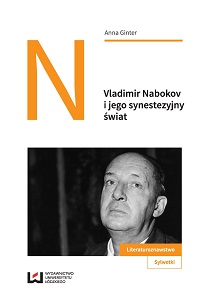
The monographic study Vladimir Nabokov and His Synaesthetic World aims at presenting the wide range of synaesthesias and synaesthetic constructions in Vladimir Nabokov’s prose. It consists of four chapters considering the phenomenon observed in selected short stories and novels of this famous Russian and American writer. The list of Nabokov’s works analysed for the present book includes 53 positions both in Russian and English languages.
More...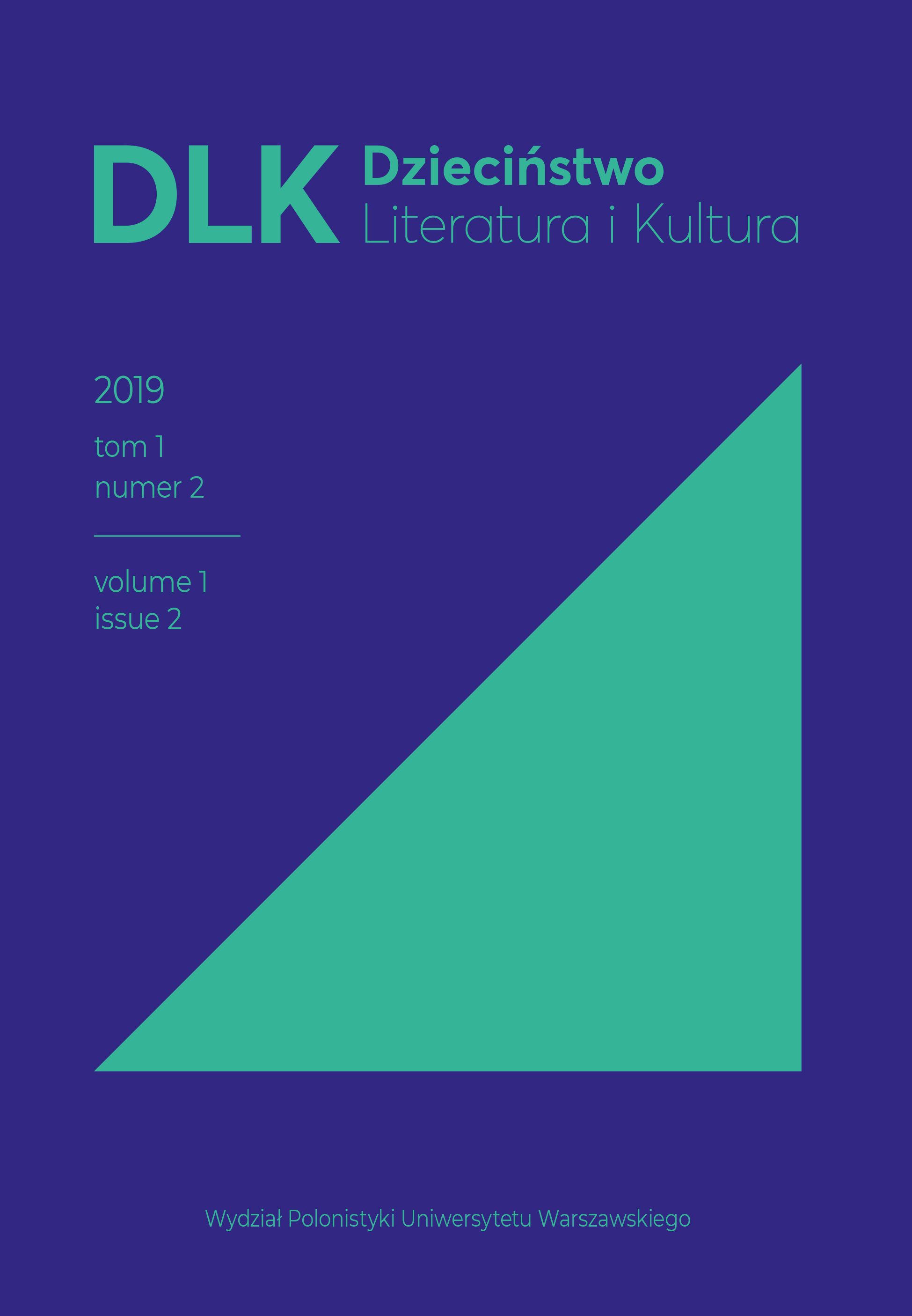
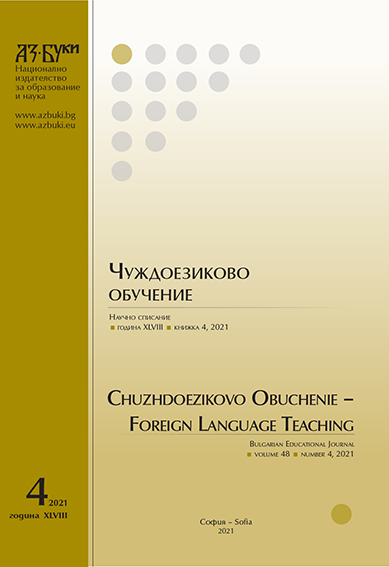
Universals as a continuation of the traditions of Russian novels of the 19th – 20th centuries. Universal meanings are clearly expressed in Russian novels of the 21st century and are conditioned by modern problems of society. Universal meanings are viewed through the prism of universal images and motives. The image of the wanderer as a universal image in the novels “Laurus”, “Aviator”, “Nenastye”, “Winter Road”, “Gods of the Steppe”.
More...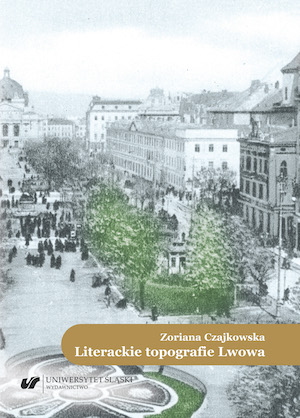
The monograph is devoted to the literary image of Lviv. It combines a new look at the borderline cultures, where the problems of cultural and historical memory and postmemory, in the melting pot of memories, reading and preserving memory, deideologization and dehierarchization of thinking, and the rehabilitation of what was concealed or forbidden are crucial. The monograph focuses on the selected Polish, Ukrainian and Russian twentieth and twenty-first century literary texts. Taken considerations are an attempt to capture general discourses of Lviv, creation of its myth/myths and to analyze how Polish, Ukrainian and Russian authors discover and perceive this unusual space. The publication also discusses how the problem of "strangeness" and/or "otherness" is reflected in literary texts and how the authors create an image of other nationalities.
More...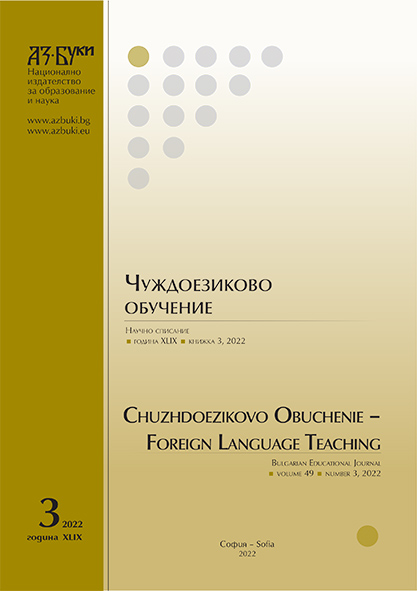
The paper focuses on identifying and methodizing key strategies and ways of rendering culture specific information in Portuguese translations of Eugene Onegin by Alexander Pushkin and aims at assessing their adequacy. Culture differences between Russia, Portugal, and Brazil provide grounds for cross-cultural barriers, the negative effect of which could be minimized if translation bridges the gap between the source and target cultural worlds. This research relies on culture specific lexical items known as ‘realia’ to examine how culture code is transferred in Russian-to-Portuguese translation of fiction. The study resulted in a new translation model providing an algorithm for rendering culture specific words. The model uses a complex of criteria that allow assessing equivalence and adequacy of items in the target language to those in the source language. Applying the model in the course of Russian-to-Portuguese translation will advance theoretically motivated decisions and contribute to the methodology of pre-translation fiction text analysis.
More...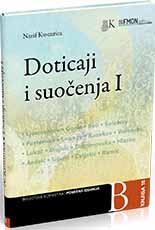
The first edition of this book under the title Contacts and Confrontations (originally Doticaji i sučenja) was published in the year 1976 by Svjetlost publishing house in Sarajevo. The largest number of the essays included in this selection, which are the result of the author’s research in literary criticism, as well as repercussions of his personal reading, have been written and published in Bosnian-Herzegovinian periodicals Izraz, Život, and Odjek One portion of the texts represents published prefaces and epilogues which have been written as accompaniment to the author’s books Numerous texts dedicated to Maksim Gorky have been the result of the author’s engagement in this Russian writer’s opus during his doctoral studies, as well as his engagement in thea esthetics and poetics of Gorky within the time of Gorky’s laudation, and contestation alike. In the second edition of Contacts and Confrontations I, which serves as the first part of the author’s critically essayistic trilogy, the texts have, within significant interventions, been left as whey were originally. The first part of the book Contacts and Confrontations I has been dedicated to Russian authors; more specifically, to the Russian literature do-main as the fundamental subject of study, which the author had been re-searching at the time of his career as a university professor. The text on Lermontov’s A Hero of Our Time, for example, has been written to serve as preface to the author’s own translation of this perhaps most prestigious of Lermontov’s works; prestigious that is to say, not only considering that the main character of the novel can be recognised as thes ummary of Lermontov’s lyrical subjects throughout his poetic opus with a strong bond to the author’s own self, but also considering the significance and meaning which this novel had for the evolution of the Russian prose in the 19th century. The following four essays dedicated to the person and opus of Maksim Gorky represent, to a degree, a concise study on this Russian classic at the brink of the 20th century: Facing Gorky Again, The Manifold Oeuvre, The Subject and Its Style in Gorky’s Opus, and Chekhov – Gorky: The Dramaturgical Counterpoint The study in question offers, throughout approximately forty pages, a versatile evaluation of Gorky’s opus, and the explanation of the place this Russian author holds in relation to the traditional Russian literature, as well as in relation to the changes the literature of the 20thcentury had brought within the specific historical, social, and ideological context Consequently, this work would later provoke various controversies, outlooks, as well as evaluations of Gorky’s opus.
More...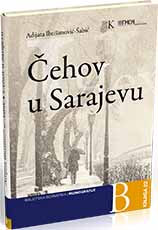
The book under the title Chekhov in Sarajevo: The Works of Anton Pavlovich Chekhov in Sarajevan Theatre in Light of Bosnian-Herzegovinian Literary and Theatre Critique offers a systematization and analysis of BH critical thought concerning this classical Russian author, whose works were performed at professional Sarajevan theatres over the course of almost a century In that sense, the book in question represents, to a degree, a syn-thesis and analysis of the reception of Chekhov’s opus in predominantly Bosnian-Herzegovinian literary critique, and moderately within BH theatre critique, which together point to the quantity and quality of Chekhov’s presence on Sarajevan stagesThe book features a scale of development of BH critique, as well as changes in reception within the historical timeline of staging theatre plays;this is why a special emphasis is made on Chekhov’s main dramas, which enjoyed a broader, stronger, and longer critical reception Other than the most prominent names of BH literary and theatre thought (Nazif Kusturica, Josip Lešić, Zdenko Lešić, Luka Pavlović, Tvrtko Kulenović, DževadKarahasan, Čedo Kisić, Gradimir Gojer, Ljubica Ostojić, Almir Bašović,and others) and relevant texts dedicated to the researched subject, the book also references anonymous articles concerning the topic, which were avail-able at the time of writing. One of the chapters is dedicated to the dramatization of Chekhov’s short stories The Witch and Ward No. 6, which appeared only within the first artistic season at the Sarajevo National Theatre in 1921; this means that the potential which Chekhov’s short stories had for theatre (and which were described as “short dramatic scenes” by BH critic Nazif Kusturica)remained mostly unrealised This chapter covers the general issue of theatre adaptation process for classic Russian prose in light of contemporary cognition, which identifies how the strategy of reading, especially theatre reading, is in fact a creative process in and of itself, the logic of which de-pends on various components which accommodate “the event of meeting”between the text and the reader.
More...
The first edition of the second book of essays Doticaji i suočenja II (Contacts and Confrontations II) was published in the year 2002 by the Faculty of Philosophy in Sarajevo. The book begins with an essay dedicated to the 200th anniversary of the birth of Alexander Pushkin entitled In the Beginning Was Pushkin. Referring to the well-known critical evaluations of Russian researchers, who rightly call Pushkin Adam of Russian Literature and The Principle of all Principles, Nazif Kusturica shows why it is said that this great artist of words, originated in the era of romanticism, is the founder of Russian realism and modern, original Russian literature.In the essay On Tolstoy’s epopee the author explains the concept of the novel-epopee and talks about War and Peace as a unique novel, that did not find a typological relative before the novel Quietly Flows the Don by Sholokhov. Aware of his innovation in the novel structure, Tolstoy only found similarities with his work in Homer’s Iliad. Intending to show Tolstoy’s transition from epic to drama, Kusturica also talks about the features of epic in the drama The Power of Darkness, reminding that Tolstoy is also an outstanding playwright.Based on the statement that Dostoevsky’s realism is firmly marked by romance, the author shows, by the example of the novel Poor Folk, in which way Dostoevsky had rehabilitated (N. K.) the sentimental principle of his characters, on which realism challenged his right.From Gogol’s ‘The Overcoat’ to Chekhov’s ‘Case’ is an essay in which the author of the book tells about the development of the theme of the little man, comparing two typologically related models – Gogol’s Bashmachkin and Chekhov’s Belikov. Having described one of the most important themes of great realism in Russian literature in the previous essay, the author also brings an extremely informative essay about Chekhov’s stories.Chekhov dealt with topics that were of great importance for the further development of Russian literature, and some of them: the responsibility of a small man for his destiny, chameleonism, the banalization of the Russian intelligence...
More...
The topic of research in the monograph is the work of N.G. Kuzmicha “My uncle”, which was published in the newspaper "Lodzinskij Listok" in 1896. It is a remake of Alexander Pushkin's poem Eugene Onegin. The work was discussed in terms of its genre form - remake and confrontation with Pushkin's prototype. The author develops the works in Lodz, and the characters are known from Pushkin's poem, but differ from these prototypes in character, appearance and others. The work of Kuzmich is one of the regional adaptations of “Eugene Onegin”, which in this case is considered in conjunction with the multicultural, industrial Lodz of the late 19th century. The monograph presents the most widely read and helpful Russian-language newspaper published in Łódź - "Lodzinskij Listok" (1894-1914), in which Kuzmich study was published. The remake as a form of reference to the classics as well as remakes and continuations of Alexander Pushkin's works “Eugene Onegin” were also discussed. The literary frame of the work “My uncle” and the adequate introductory fragments present in Pushkin's original were also analysed. The image of Lodz presented in Kuzmich’s work and in the columns of the newspaper "Lodzinskij Listok" was also considered. In the analytical and descriptive part of the monograph, attention was focused on the three main characters of Kuzmich work: uncle, Tatiana and Eugene, and their prototypes created by Pushkin. A separate chapter is devoted to the narrator who plays a role in the work, taking into account the traditional, omniscient narrator, but also, like the characters, in their world and does not always reveal other information about them. The work is finalized with an appendix to my original text by uncle N. G. Kuzmich and its translation into Polish.
More...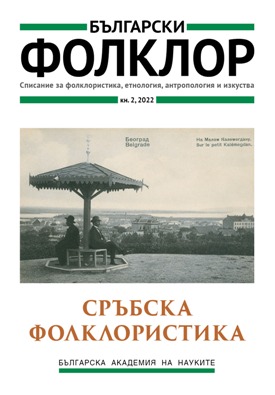
Book Review: Савремена српска фолклористика VIII ‒ словенски фолклор и књижевна фантастика. Ур. Дејан Ајдачић и Бошко Сувајџић. Београд: Удружење фолклориста Србије, Универзитетска библи- отека „Светозар Марковић”; Кијев: Комисија за фолклористику Међународног комитета слависта; Лозница: Центар за културу „Вук Караџић”, 2020. 518 стр. ISBN 978-86-7301-149-3
More...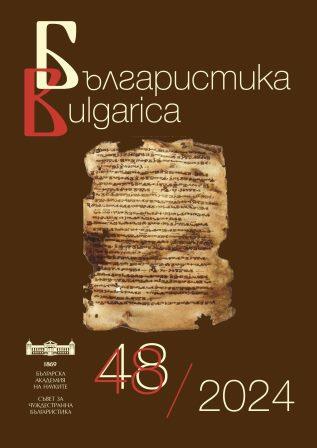
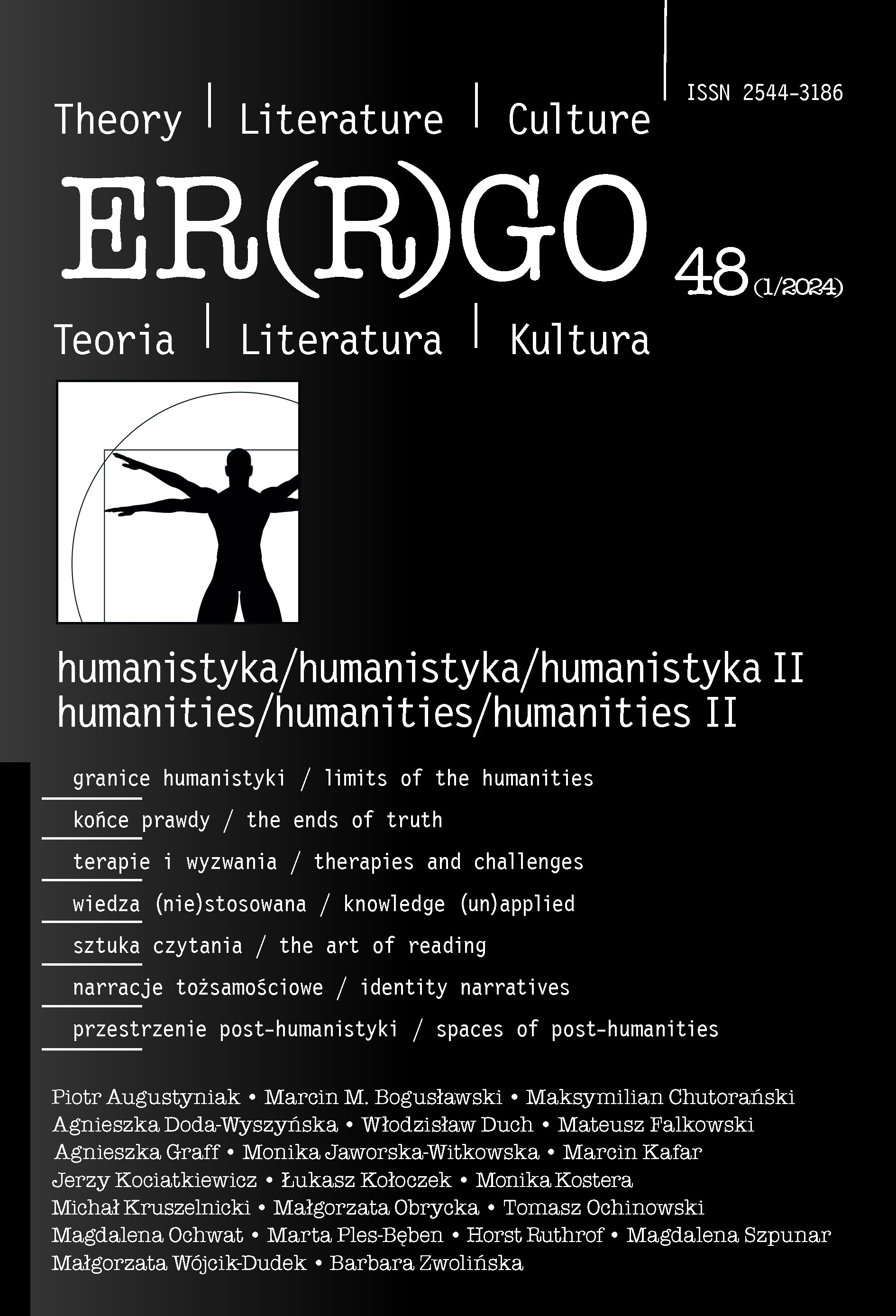
The paper revisits the dialogue between Vyacheslav Ivanov and Mikhail Gershenzon in order to present two essentially different orientations in the approach to humanistic heritage and its meaning in human life. The first of these two perspectives is represented by V. Ivanov who feels amongst the great works of culture “at home,” who praises their charms and spiritual-aesthetic riches. The second perspective – as evoked by Gershenzon – is more pessimistic, existentially inclined, filled with tragic awareness. It points out to the problem of crucial importance to the historiosophical self-awareness of modernity: the accumulation of cultural knowledge and the release of theoretical reflection have alienated the human being and cast it into existential homelessness. The paper further argues that (1) there exists an irreducible hiatus between culture and the reality with its power of negativity, and that (2) the ambassadors of culture, such as Ivanov, conceal this hiatus in an attempt to convince us that theoretical humanistic reflection intensifies our perception of the world, while in Gersenzhon’s historiosophical view it ruins the immediacy and spontaneity of life.
More...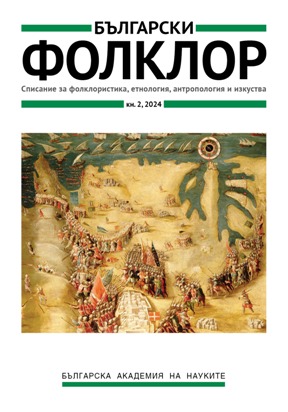
The article is focused on an internationally known plot type: the story of a maiden whose hands were cut off and miraculously restored. The author studies the variants of the motif and their symbolism in Bulgarian milieu, and suggests the hypothesis that it has originated as an element of archaic initiation rites. From there, it permeates the folk tale, where its symbolism refers to the heroine’s passage from a maiden into a wife and mother. At a later stage, this motif is utilized in religious literature and acquires Christian interpretation. In the course of time, a series of borrowings and mutual influences take place in both directions. Thus, the Christian and the folkloric narratives share a common thesaurus of plots, motifs, images and symbols. These refer to an ancient archetypal basis, but preserve their ability to assimilate versatile meanings in different contexts.
More...